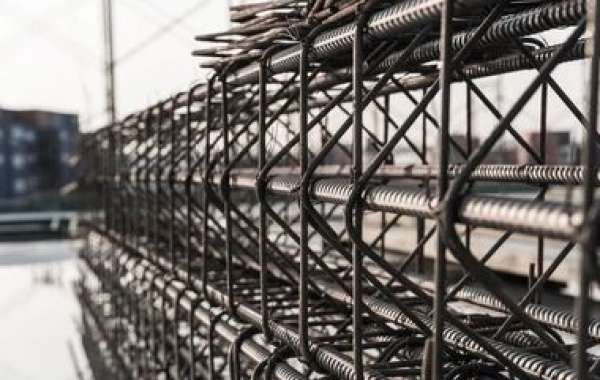Steel is a critical material in the construction, manufacturing, and infrastructure sectors. One of the most prominent brands in the steel industry, Jindal Steel, has built a reputation for high-quality steel products, particularly in the form of TMT bars, which are widely used in construction for reinforcing concrete. However, like any other commodity, Jindal Steel prices are subject to fluctuations driven by several factors such as market conditions, raw material costs, demand, and international trade policies. In this article, we will explore the factors that influence Jindal Steel prices, the current price trends, and how these prices affect industries reliant on steel for their operations.
The Current State of Jindal Steel Prices
As of today, Jindal Steel prices are seeing some degree of fluctuation, a common occurrence in the steel market due to both domestic and global influences. In India, prices for Jindal Steel products like TMT bars, HR coils, and MS plates are often quoted in terms of INR per metric ton. The prices of Jindal Steel products can range from ₹45,000 to ₹65,000 per ton for TMT bars, depending on the size, grade, and location of supply.
The fluctuations in Jindal Steel prices are not isolated but are part of a broader market trend. For example, in the first quarter of 2024, the price of steel witnessed an upward trend due to increased demand in the construction and infrastructure sectors, both of which are seeing significant growth. The government’s focus on infrastructure projects, such as roads, bridges, and affordable housing under initiatives like the National Infrastructure Pipeline (NIP), has increased demand for steel, which, in turn, has impacted the pricing of Jindal Steel products.
Factors Affecting Jindal Steel Prices
The price of Jindal Steel is influenced by various factors, both internal and external. Here are some key variables that contribute to price changes:
- Raw Material Costs
The primary raw materials for steel production are iron ore and coal. Any fluctuation in the cost of these materials can directly impact the price of Jindal Steel products. For instance, when iron ore or coking coal prices increase globally, the cost of steel production rises as well. Since these materials are sourced from different parts of the world, any disruptions in their supply chains due to geopolitical tensions, mining restrictions, or natural disasters can lead to an increase in raw material costs, thus affecting Jindal Steel prices.
- Market Demand and Supply
The law of supply and demand is one of the most fundamental factors driving the Jindal Steel prices. When demand for steel increases—whether due to the growth of infrastructure projects, industrial expansion, or construction booms—the price tends to rise as suppliers adjust to meet this demand. Conversely, during times of economic slowdown or when construction activity slows down, steel demand wanes, leading to reduced prices.
In India, government policies like the Make in India initiative and urbanization projects like Smart Cities have led to an increase in the demand for steel, thus pushing Jindal Steel prices upward.
- Energy Costs
Steel manufacturing is an energy-intensive process. The costs associated with energy—especially electricity and gas—have a significant impact on steel prices. If energy prices rise due to inflation or geopolitical conflicts, it leads to higher production costs for Jindal Steel. Since energy is a crucial component of steel production, fluctuations in energy prices directly affect Jindal Steel prices.
- Global Market Influences
Steel is a globally traded commodity. Therefore, the Jindal Steel price can also be influenced by global market conditions. International demand, particularly in emerging economies like China and the United States, plays a significant role in shaping steel prices worldwide. Additionally, steel production restrictions in countries like China, which is one of the largest producers of steel, can lead to fluctuations in the global supply of steel, causing price shifts.
- Currency Fluctuations
As steel is traded globally, fluctuations in currency exchange rates can influence Jindal Steel prices. If the Indian Rupee weakens against major currencies like the US Dollar or Euro, it can increase the cost of imported raw materials, which in turn raises the price of domestic steel products. Currency devaluation can have a ripple effect on steel costs, especially in the case of global raw material sourcing.
How Rising Jindal Steel Prices Impact Industries
The Jindal Steel price is crucial not only for steel manufacturers but also for a wide range of industries that depend on steel for their operations. For example, in the construction sector, the price of steel can directly affect the cost of building materials, leading to higher construction costs. For industries like automotive manufacturing, any increase in Jindal Steel prices can lead to a rise in production costs for vehicles.
The Future of Jindal Steel Prices
Looking ahead, Jindal Steel prices are likely to remain influenced by the aforementioned factors, with particular attention paid to raw material prices, global market conditions, and government policies. As India continues to invest heavily in infrastructure and urbanization projects, demand for steel is expected to remain strong, which could keep Jindal Steel prices stable or even push them higher.
However, technological advancements in steel production, such as the adoption of electric arc furnaces, could help stabilize prices by reducing the costs of production. Additionally, as companies look for more sustainable and eco-friendly steel production methods, this could have long-term effects on pricing.
Conclusion: Stay Informed for Better Decision-Making
To make informed decisions about purchasing Jindal Steel products, it’s essential to stay updated with the latest market trends and Jindal Steel prices. Whether you’re a contractor, builder, or manufacturer, knowing the current price range for steel products will help you plan your budget and avoid unexpected costs.
For the most accurate and up-to-date Jindal Steel prices, visit www.steeloncall.com or contact us at 18008332929. Our team is ready to assist you with all your steel requirements.
#JindalSteelPrices #SteelMarketTrends #SteelPriceFluctuations #ConstructionIndustry #SteelDemand




